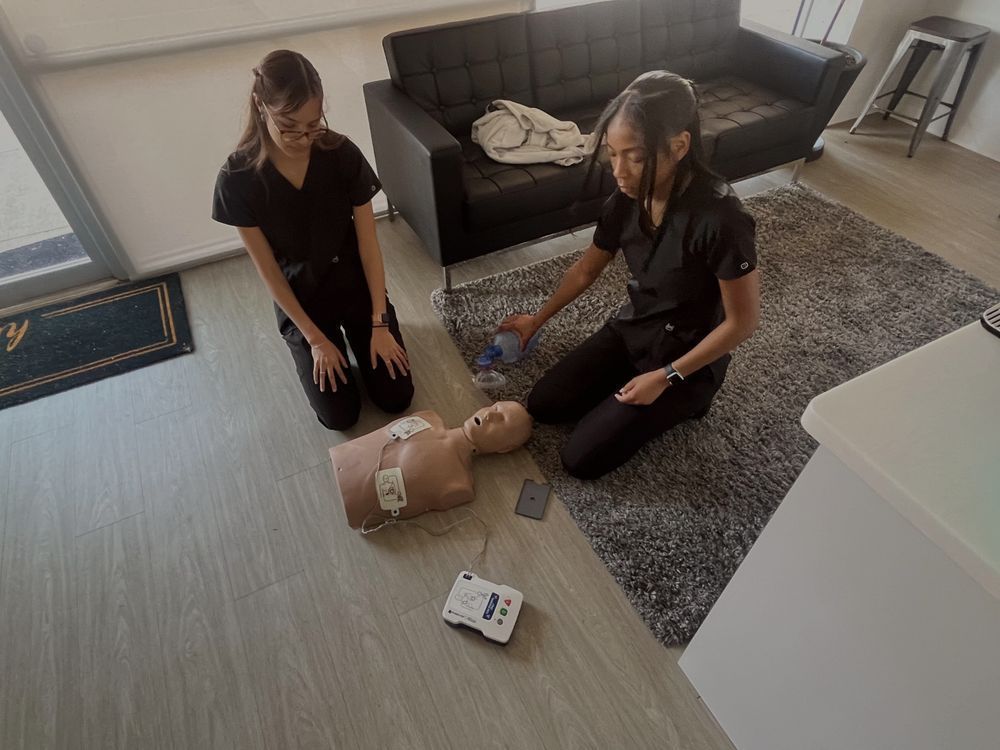What Do Medical Assistants Do_ A Look at Their Daily Responsibilities
What Do Medical Assistants Do? A Look at Their Daily Responsibilities
In today’s fast-paced healthcare system, medical assistants play a critical role in ensuring smooth and efficient patient care. From managing front office operations to directly assisting physicians during exams, they serve as the bridge between clinical and administrative functions. Their work supports doctors, reassures patients, and helps keep healthcare facilities running at top speed.
But what does a medical assistant actually do on a typical day? Their responsibilities vary depending on the setting and specialty, but they generally include a mix of clinical and administrative tasks. In this blog, we’ll break down seven key responsibilities of a medical assistant, helping you understand the full scope of their work and the skills required to succeed in this growing field.
- Taking Patient Vital Signs
One of the first tasks a medical assistant performs when a patient enters the exam room is collecting vital signs. This includes measuring blood pressure, heart rate, temperature, respiratory rate, and sometimes oxygen saturation. These measurements provide a baseline for physicians to assess a patient’s health status and determine next steps.
Collecting vital signs requires more than just operating a machine. Medical assistants must know how to use manual and electronic tools, how to position patients properly, and how to recognize when something is out of range. They must also reassure patients who may be nervous or in pain, creating a calm environment during intake.
- Updating and Managing Patient Records
Accurate documentation is essential in healthcare. Medical assistants are responsible for updating patient medical records with information gathered during appointments. This may include documenting vital signs, symptoms, patient complaints, medical histories, medications, and treatment plans.
In an increasingly digital world, medical assistants often use electronic health records (EHR) systems to ensure consistency and confidentiality. They must be detail-oriented and familiar with medical terminology, billing codes, and privacy laws such as HIPAA. Any mistakes or omissions can impact patient care, insurance claims, or legal compliance.
- Assisting with Examinations and Procedures
Medical assistants frequently provide hands-on support during patient exams and minor procedures. They may hand instruments to the physician, hold the patient in position, or prepare the area for treatment. In some cases, they’re responsible for cleaning and sterilizing equipment between uses.
This role requires medical assistants to be comfortable in clinical settings and responsive to physician instructions. They must anticipate what the provider needs and be ready to act quickly while maintaining a high standard of hygiene and safety. Their support allows physicians to stay focused on diagnosis and treatment.
- Administering Injections and Medications
In many states, medical assistants are trained to administer injections, vaccines, and medications under the supervision of a physician or nurse. This might include flu shots, allergy injections, or oral medications given during an office visit.
Proper administration requires technical knowledge and patient communication skills. Medical assistants must verify the correct medication and dosage, check for allergies, and explain potential side effects. They also need to observe patients afterward for adverse reactions. Safety and precision are vital in this task, making training and attention to detail critical.
- Preparing Exam Rooms and Medical Equipment
Before a patient enters an exam room, a medical assistant has often already been hard at work. They prepare the room by cleaning surfaces, stocking necessary supplies, and ensuring all equipment is in working order. After each appointment, they sanitize the room to prevent cross-contamination and restock as needed.
This responsibility keeps the practice running smoothly and on schedule. A well-prepared room allows the provider to move efficiently from one patient to the next without delays. Medical assistants must be familiar with infection control protocols and be proactive about inventory management and cleanliness.
- Scheduling Appointments and Managing the Front Office
Many medical assistants also handle administrative tasks at the front desk, especially in smaller clinics. They greet patients, answer phones, schedule appointments, verify insurance, and collect payments. Their goal is to create a positive first impression and ensure a smooth administrative experience for patients.
Balancing clinical and administrative work requires strong organizational and interpersonal skills. Medical assistants must communicate clearly, juggle multiple tasks, and maintain professionalism—even when the waiting room is full and the phones won’t stop ringing. Their ability to stay calm under pressure helps the entire office operate more effectively.
- Educating Patients on Treatments and Care
Medical assistants often serve as a source of guidance and reassurance for patients. After the provider has explained a diagnosis or treatment plan, the medical assistant may step in to reinforce key points. This could involve reviewing medication instructions, demonstrating how to use a medical device, or answering questions about follow-up care.
Patient education requires clear communication and empathy. Medical assistants must make sure patients understand their next steps and feel supported in managing their health. They also play an important role in encouraging preventive care by providing wellness tips and reminders for screenings or vaccinations.
Medical Assistants Make Healthcare Work
Medical assistants wear many hats—and wear them well. They perform vital signs checks, manage records, assist in procedures, administer medications, prepare exam rooms, handle front-desk operations, and educate patients. Their work is essential to the patient experience and the efficiency of healthcare delivery.
If you’re interested in stepping into a meaningful healthcare career with a wide variety of responsibilities, becoming a medical assistant could be the perfect fit. And there’s no better place to begin than Pulse Medical Assistant School.
Pulse Medical Assistant School is an online-first, 16-week medical assistant program that combines flexible learning with intensive, in-person labs. You’ll build the knowledge, confidence, and hands-on skills needed to help real patients receive real care. Get started today and launch your career in one of the most rewarding roles in healthcare.
You're only a few months from the medical assistant career you deserve.
